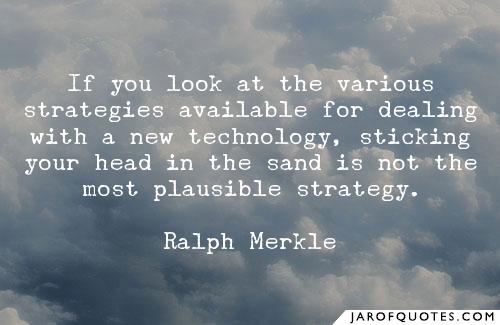
Page Description
Discover why some choose to ignore reality. Explore the psychology and consequences of ‘burying your head in the sand.’
The Tragedy of Indifference: How the Post Office Failed in Its Duty
Despite the profound suffering endured by countless Subpostmasters, the Post Office, owned by the British Parliament, continuously neglected its responsibility. Allan Bates, from the very beginning, was clear about the root of the problems. Yet, even as he raised alarm about the flawed software and its devastating consequences, the Post Office refused to acknowledge its failures. Instead, they perpetuated a web of deceit, with their helpline dismissing the victims: ‘You’re the only one.’ This callous attitude allowed the scandal to grow unchecked, as the state-owned institution ignored the reality of the suffering it caused, all while failing to take any accountability.
De tragedie van onverschilligheid: Hoe de Post Office haar verantwoordelijkheid verzaakte
Ondanks het diepgaande lijden van talloze subpostmasters bleef de Post Office, eigendom van het Britse Parlement, haar verantwoordelijkheid negeren. Allan Bates wees vanaf het begin duidelijk op de kern van de problemen. Toch weigerde de Post Office, zelfs toen hij alarm sloeg over de gebrekkige software en de verwoestende gevolgen ervan, haar fouten te erkennen. In plaats daarvan hielden ze een web van misleiding in stand, waarbij hun hulplijn de slachtoffers afwimpelde met: ‘U bent de enige.’ Deze gevoelloze houding maakte het mogelijk dat het schandaal ongestoord kon groeien, terwijl de staatsinstelling de realiteit van het veroorzaakte leed negeerde en elke vorm van verantwoordelijkheid ontliep.
1 Turning a Blind Eye: Ed Davey’s Role in the Post Office Scandal Inquiry
1 Post Office Inquiry | Ed Davey: ‘I Was Unaware Of Post Office Prosecutions Against Sub-Postmasters’
18 jul 2024
Sir Ed Davey has told the Horizon Post Office inquiry that he was ‘not aware’ that the Post Office was prosecuting sub-postmasters whilst he was postal affairs Minister.
Davey argued that it was not his role as minister to get involved in the day-to-day running of the Post Office, and his focus in cabinet was to ensure there were no more closures of post offices and to maintain the network.
The leader of the Liberal Democrats is being crossed examined by Jason Beer KC.
Credit: Post Office Horizon IT Inquiry
2 ‘A Complete Travesty!’ Sir Ed Davey Grilled At Horizon Post Office Inquiry
18 jul 2024
Credit: Post Office Horizon IT Inquiry
Lib Dem leader & former postal affairs Minister Sir Ed Davey has faced questioning at the Post Office inquiry over his role in the Horizon IT scandal.
After being cross examined by Jason Beer KC, Tim Moloney KC, representing convicted sub-postmasters grills the politician.
Mr Moloney presents Davey with a letter written by him appearing to misrepresent the case of a convicted sub-postmaster Mrs Henderson. Ed Davey agrees with the sentiment and apologises.

Do ostriches really bury their head in the sand?
As flightless birds, ostriches are unable to build nests in trees, so they lay their eggs in holes dug in the ground. To make sure that the eggs are evenly heated, they occasionally stick their heads into the nest to rotate the eggs, which makes it look like they’re trying to hide – hence the myth. An ostrich trying to hide from predators in this way wouldn’t last for long, and it wouldn’t be able to breathe, either!
The expression “bury your head in the sand” is a metaphorical phrase that means to ignore or avoid a difficult or unpleasant situation, usually by pretending that it doesn’t exist or by refusing to face it. Here are some key points about this expression:
It comes from the behavior of ostriches, which are said to bury their heads in the sand when they are afraid or threatened. However, this is a myth, as ostriches do not actually bury their heads in the sand.
The expression is often used to describe someone who is avoiding a problem or danger by ignoring it or denying its existence.
It can also be used to criticize someone for not taking action or for being complacent in the face of a problem.
The expression is often used in a negative context and is seen as a form of cowardice or irresponsibility.
It is important to face difficult situations and problems rather than avoiding them, as ignoring problems can lead to bigger and more serious issues down the line.
Overall, the expression “bury your head in the sand” is a warning against ignoring problems or avoiding difficult situations, and encourages people to face challenges head-on.
2 The Longest Cover-Up: How Oil Giants Hid the Truth About Climate Change
The Biggest Cover-Up in History: 60 Years of Climate Change Secrets | Full Environmental Documentary
3 jul. 2021
“For me, this is the biggest scandal in human history,” says Carroll Muffett, Chairman of the Center for International Environmental Law in Washington, an NGO dealing with environmental law.
With Donald Trump, an outmoded view of climate change has taken hold of the White House again. Great news for oil companies such as Exxon and Shell. They have been secretly financing scientific studies and campaigns, which are talking down climate change and have been influencing the public debate for 60 years.
New documents prove that since 1957, these companies have known that burning fossil fuels changes the climate – their own, strictly secret research had revealed this. But the US oil companies did not only carry out research and then concealed their results. Since 1963, Exxon and Shell engineers have been using their knowledge about climate change to gear up for a warming planet: They built higher and sturdier oil rigs to compensate for rising sea levels and more severe storms. Pipelines in the Arctic were anchored more firmly because of the melting permafrost.
“Climate change was a huge thing at the time,” says geophysicist Edward Garvey, who worked for Exxon from 1978-1983. “Exxon researched in all directions, CO2 emissions, storm forecasts, melting permafrost. And then, overnight, all research programmes were discontinued. That’s so frustrating.”
Instead, the companies did exactly the opposite: they commissioned counter-studies, which were widely disseminated via lobby groups. They deliberately financed research to discredit their own results, tried to explain climate change through sunspots or deny it altogether. They stressed statistical errors and uncertainties. Climate change deniers still work like this today.
Meanwhile, two public prosecutors and several counties in the United States have started investigations against Exxon and other oil companies for deliberately misleading the public on the subject of climate change.
A story about the biggest cover-up in history, which lasted for 60 years and is only now being revealed.
—
3 What’s the Right Thing to Do: Outrage at Injustice
1 Michael Sandel – Justice: What’s the right thing to do?
8 mrt. 2010
In this video, Michael Sandel
explains fundamental ideas
about life and society
in an insightful way.
The expression “bury your head in the sand” is an idiomatic phrase that refers to the act of ignoring or avoiding a problem or difficult situation, hoping it will just go away on its own. The key points of this expression are:
Ignorance: The expression implies a willful act of ignoring or avoiding something that requires attention or action.
Avoidance: The person who buries their head in the sand hopes that the problem or difficult situation will disappear without taking any action to address it.
Consequences: The expression also suggests that this type of avoidance can have negative consequences, as the problem may become worse or more difficult to solve if left unaddressed.
Criticism: The expression can also be used to criticize someone for not facing reality or for refusing to deal with a difficult situation.

Bury/have your head in the sand
to refuse to think about unpleasant facts, although they will have an influence on your situation:
You’ve got to face facts here – you can’t just bury your head in the sand.
Cambridge Dictionary
2 Blowing Up Cars For Fun
23 mrt. 2013
生活有滋有味
1 maand geleden